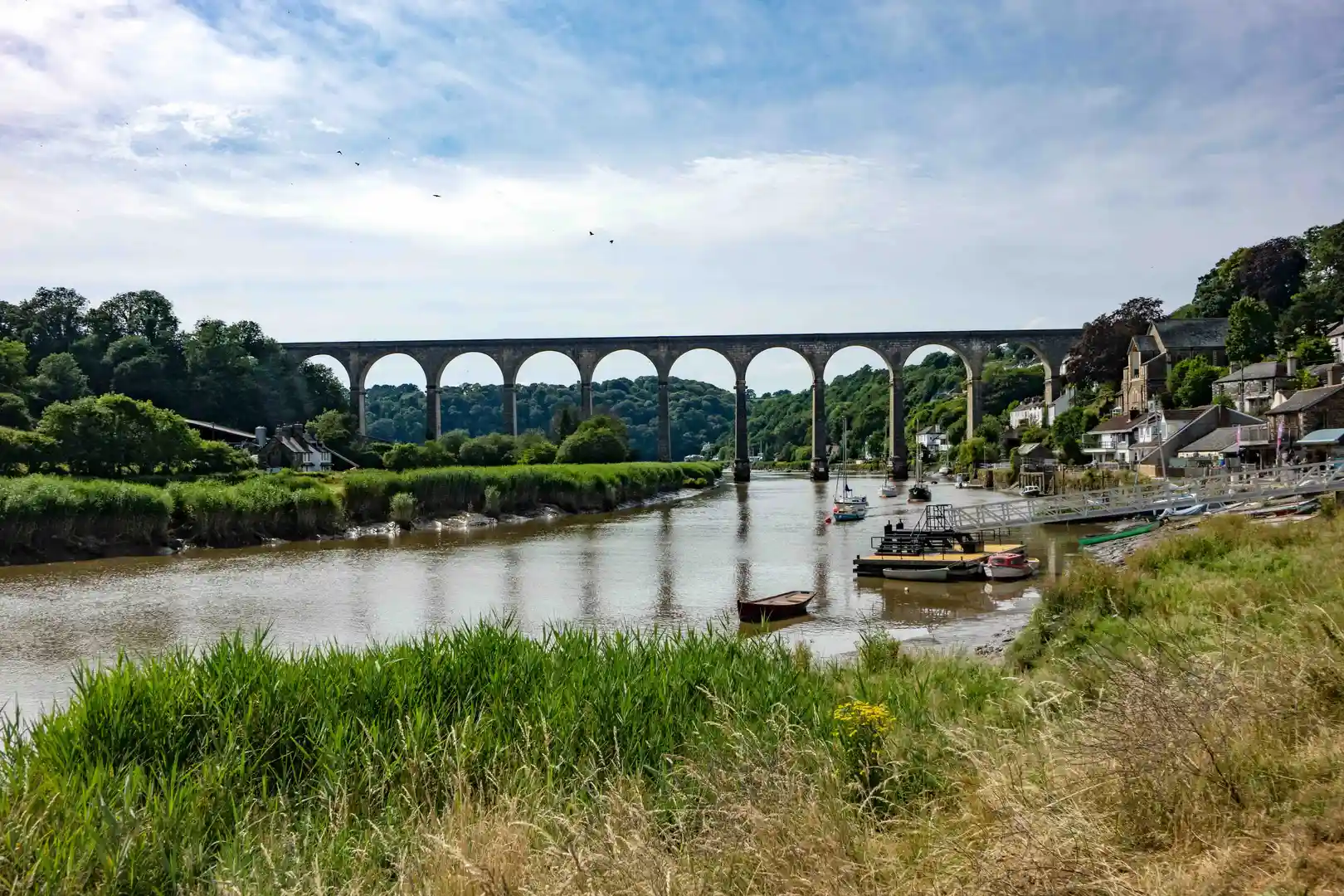
A peaceful borderland where Cornwall meets Devon, shaped by rivers and mining history.
The Tamar Valley National Landscape, spanning the counties of Devon and Cornwall, is a quieter but deeply rewarding destination for walking holidays and outdoor adventures. Following the winding River Tamar and its tributaries, this protected landscape blends wooded valleys, orchards, and rolling farmland with the industrial heritage of the Cornwall and West Devon Mining World Heritage Site.
From Plymouth in the south to Launceston in the north, the valley reveals a gentler side of South West England. With riverside paths, wooded ridges, and historic villages such as Calstock, Gunnislake, and Bere Alston, the Tamar Valley offers slower, more reflective walking than the wild uplands of Dartmoor or the Atlantic cliffs of Cornwall. Here, you’ll discover ancient quays, mining relics, and tranquil estuaries where wildlife thrives.
Counties: Devon, Cornwall
Tamar Valley Discovery Trail
A 35-mile route from Plymouth to Launceston, tracing the Tamar Valley through woodland, farmland, and riverside paths.
South West Coast Path (Plymouth Section)
Though mainly coastal, the South West Coast Path begins in Plymouth, on the Tamar estuary, linking the National Trail to the valley.
Mineral Tramways and Heritage Trails
Remnants of Cornwall’s mining history provide shorter walking and cycling routes, connecting engine houses and former tramway lines.
Local Circulars
Smaller routes explore Calstock, Gunnislake, and Cotehele House, combining riverside scenery with heritage landmarks.
It straddles the border of Devon and Cornwall, centred on the River Tamar and its tributaries.
The Tamar Valley Discovery Trail is the flagship long-distance route, while riverside circuits around Calstock and Cotehele are popular shorter walks.
Yes — the Tamar Valley offers gentler walking, with wooded valleys, farmland, and heritage landscapes rather than high moorland or dramatic cliffs.
Spring brings blossom and birdlife; summer offers green valleys and longer days; autumn colours the woods; winter gives peaceful estuary views.
Yes — the rivers are ideal for canoeing, and former tramways are popular for cycling.